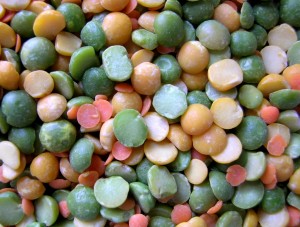What are the best diets for children with autism? Here are some gluten-free diet dips, plus 5 more great eating plans for kids with special needs.
Autism is a brain disorder that affects a child’s ability to communicate feelings, desires, and needs. Autistic children are often referred to as “special needs,” because they require individualized attention.
One common symptom of autism is the tendency to suffer gastrointestinal problems, such as diarrhea, stomach cramps and constipation. According to Livestrong, almost half of all children diagnosed with autism spectrum require a special diet, such as a gluten-free diet plan, to prevent stomach upset. Additionally, scientists have also noticed a decrease in some of the behavioral signs of autism in children who followed special diets.
Below is a list of 6 popular diets for children with autism which have been found to drastically improve their health:
1) Gluten-Free Diet (GF)
Gluten is a protein which occurs naturally in grains such as wheat, barley and rye. Many individuals, in addition to children with Asperger’s syndrome or other forms of autism, have benefited greatly from removing all products which contain gluten from their diet. A wide range of bakery items, mixes, packaged snack foods and flours which are labeled gluten-free are available at most health food stores. Grains which do not have gluten are popcorn, brown rice and whole-grain corn meal.
2) Casein-Free Diet (CF)
Casein is a protein found all milk products, including milk, cheese, yogurt, cream and milk derivatives, such as whey. Many people who benefit from a dairy-free diet will often omit gluten as well. The gluten free-casein free (GFCF) diet has helped children and adults manage allergies and promote intestinal health.
3) Body Ecology Diet (BED)
The Body Ecology Diet was developed to correct digestive flora when fungal infections occur in the gut.
Based on the theory that autism and a multitude of other health problems are caused by pathogenic organisms which escape the infected gut and attack the rest of the body, the BED diet incorporates a combination of cultured foods, healthy oils and reduced carbohydrates and sugars for generating good bacteria in the intestines.
4) Low Oxalate Diet
Oxalates are salts which occur in naturally in many vegetables, fruits and other plant-based food items, such as sweet potatoes, strawberries and chocolate. A low-oxalate diet is often prescribed for people who get kidney stones.
Many autistic children whose parents have restricted oxalates from their diets have experienced improved urinary tract health, clearer skin when eczema was a factor, better digestive health, and enhanced feelings of wellness.
5) Nutrient-Rich Diet
The inclusion of various vitamin-rich foods, supplements, healthy oils, lean proteins and dietary fiber has been used as an autism treatment for children with autism spectrum and Asperger’s, in addition to children with ADHD.
Children with autism who suffer vitamin B12 deficiency, for example, often feel fatigued, irritable and restless. Nutritionists who treat special needs children have noted a rapid improvement in mental clarity, energy levels and overall health with the addition of beneficial vitamin B12 supplements and omega-3 foods, such as salmon, flaxseed and walnuts, t0 their diet.
6) Specific Carbohydrate Diet (SC)
The Specific Carbohydrate Diet was originally developed for patients of Crohn’s disease and colitis, and is based on the premise that rotted, undigested carbohydrates sit in the gut and harm our immune system. The SC diet recommends restricting certain carbohydrates, while encouraging the consumption protein foods such as meat, fish and eggs, vegetables and fruit, and healthy oils, such as nuts and seeds.
If you liked this article, you might also like:
10 Great iPad Apps for Autistic Children
Can a Gluten-Free Diet Ease Symptoms of Fibromyalgia?
Top 10 Children’s Books Which Raise Autism Awareness
Support for Parents of Autistic Children
Sources:
http://www.livestrong.com/article/290131-good-diets-for-an-autistic-child/
http://www.livestrong.com/article/458819-diets-for-autistic-children/
http://www.autismndi.com/news/display.asp?content=news&shownews=20040721140600


